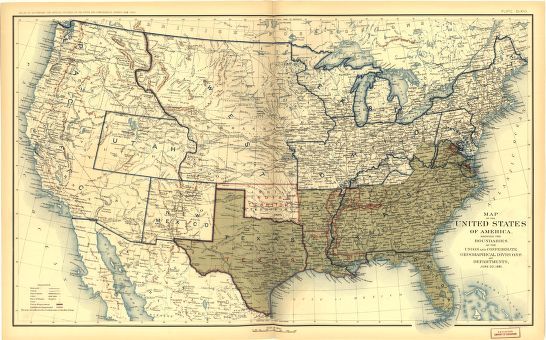 Some Northern Baptist families contribute multiple men to the war effort of the United States of America. Such is the case with the Robison family of Illinois.
Some Northern Baptist families contribute multiple men to the war effort of the United States of America. Such is the case with the Robison family of Illinois.
One of four brothers who serve in the Union Army, Thomas L. Robison, a farmer’s son, enlisted on November 7, 1861 in the Company K, Fifty-sixth Regiment, Illinois Volunteer Infantry. His unit fought its way southward in 1862, and today, upon serving the terms of his initial enlistment, Robison receives an honorable discharge in Corinth, Mississippi, far from home. Re-enlisting on September 6, 1863, Robison serves for the remainder of the war, receiving his final discharge on November 5, 1865, in Selma, Alabama.
Following the war, a biographical sketch of Robison’s life notes the following regarding the Baptist layman:
Mr. Robison participated in some of the bloodiest battles of the war, including Corinth, Moscow, Hurricane Creek, Collinsville, Franklin, Nashville and Columbia. At the battle of Nashville he was wounded in the left thigh, and a bursting shell so injured the drum of his right ear that during his later years he has been affected by partial deafness; at the battle of Moscow he was wounded in the right arm, and in the battle of Franklin was severely wounded in the right breast. A brave and faithful soldier, he is remembered by his old comrades as one to whom no danger was too great to risk, no march too long, no duty too irksome, and he was respected by his officers and admired by his fellows. Golconda G. A R. Post, No. 332, has no more highly esteemed member.
On his return from the service Mr. Robison engaged in farming in Pope county until November 9, 1884, which was the date of his advent in Johnson county. In 1901 he purchased a farm of eighty-nine acres three miles west of Ozark, but on April 14, 1902, moved to the village, where he has since resided. He is the owner of five town lots and a handsome residence, and is numbered among the substantial men of his community. During the eighteen years he lived at Sanburn, from 1884 until 1902, he served as justice of the peace and notary public. He was also one of the most successful pension attorneys in Southern Illinois, and supplemented his service as a soldier by greatly aiding the veterans and the widows of those who had lost their lives in battle. Fraternally he is connected with Tunnel Hill Lodge, No. 611, I. O. O. F., and his religious belief is that of the Baptist church.
Source: George Washington Smith, A History of Southern Illinois: a Narrative Account of its Progress, its People and its Principle Interests, Chicago: Lewis Publishing Company, 1912, pp. 1151-1152 (link)


